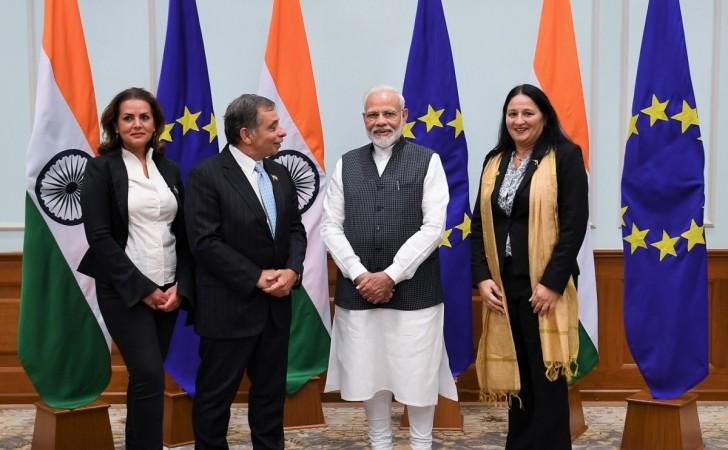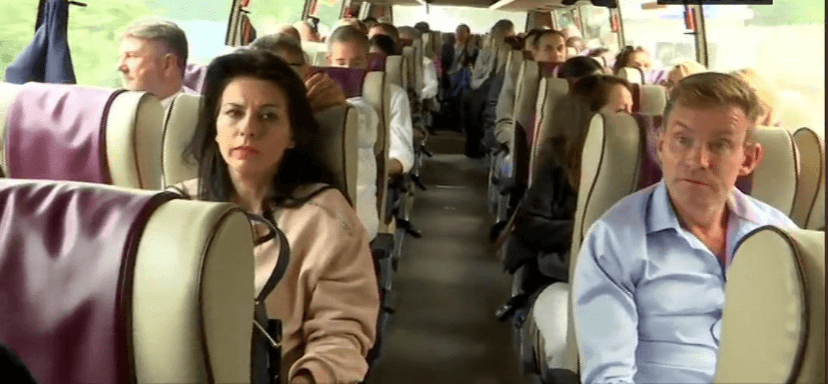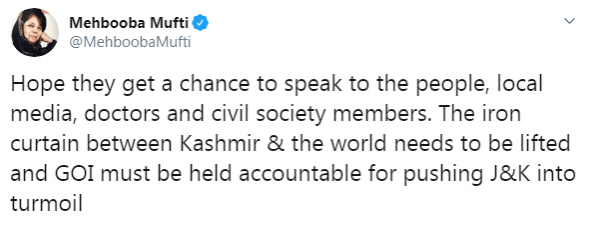
A 28-member European Parliamentary delegation met Prime Minister Narendra Modi here on Monday, a day ahead of their visit to Kashmir — the first such visit to the Valley that comes amid concerns voiced in the US and some other countries over the situation in the state after the revocation of its special status. The delegation, which the European Union branch in New Delhi said is "not an official delegation", also met National Security Advisor (NSA) Ajit Doval.
Modi, during his meeting, pressed for urgent action against the countries using terrorism as state policy — in an apparent reference to Pakistan — thus setting the tone for the visit of the team to Kashmir. Modi expressed hope that the members would get a "better understanding" of the region and "a clear view" of the government's development and governance priorities there. Their visit to Kashmir on Tuesday comes two days ahead of the state's formal bifurcation into two Union Territories -- Jammu and Kashmir and Ladakh.

This is the first foreign delegation to visit Kashmir since its special status granted under Article 370 was abolished on August 5, which led to a huge outcry in neighbouring Pakistan and persistent efforts by Islamabad to internationalise the issue. Doval, who hosted the delegation for lunch, briefed the members on cross-border terrorism emanating from Pakistan and the constitutional changes made in the status of Kashmir following the revocation of Article 370.
Some Kashmiri leaders, including some newly-elected Block Development Council (BDC) members in the state, also met the EU members. The delegation, which includes members from the UK, France, Italy, Poland and Germany, later called on Vice President M. Venkaiah Naidu. The visit comes days after a US Congressional panel questioned US State Department officials, including Assistant Secretary Alice Wells, on the situation in Kashmir.
Six US lawmakers also wrote to Indian envoy to the US, Harsh Vardhan Shringla, asking for specific information on Kashmir, despite his "update" on the situation there. The lawmakers wanted Shringla to provide answers to queries like how many people have been detained under the Public Safety Act, on reports of use of rubber bullets, and whether journalists and members of the US Congress will be allowed free access to Kashmir Valley.

India has explained that the move on Kashmir is aimed to bring the region the benefits of the development processes that the rest of India gets, including for women and children and Dalits, who were being deprived of earlier due to its special status. Pakistan has lost no chance to raise the Kashmir issue at every international forum and has been carrying on a sustained misinformation campaign against India.
The visit of the EU delegation is an attempt by India to counter the negative picture of Kashmir sought to be portrayed by Pakistan. The Indian government has been slowly easing the clampdown in Kashmir, including restoring most of the mobile services, while all essential services are being provided to the people.
















